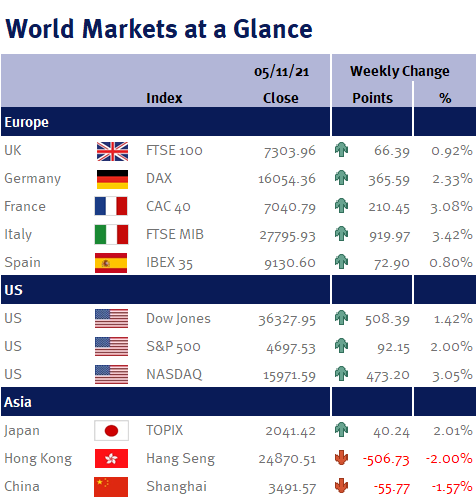It was a full-on week of monetary policy excitement as we had central bank meetings in the US, UK & Australia, especially given there was a heightened risk that policymaker actions to the recent higher inflation readings could damage the economic recovery.
The Reserve Bank of Australia (RBA) was first up on Tuesday (2 November 2021) and while Philip Lowe, the Reserve Bank Governor, voiced concern about global inflationary pressures, he dismissed speculation that Australian interest rates would rise early next year as a complete overreaction to an inflation increase which is a result of coronavirus restrictions – and as such he said RBA policymakers were in no hurry to increase interest rates.
It was a similar story from the Fed on Wednesday (3 November 2021) as Jay Powell, the Fed chair, also stressed that while longer and more persistent supply-chain disruptions and bottlenecks would lead to higher inflation, the US central bank would be patient with any interest rate increases.
Additionally, and as expected, Fed policymakers announced it would start to taper to their QE program by $15bn a month.
In the UK, while it was a similar story, the BoE’s actions did cause a stir.


